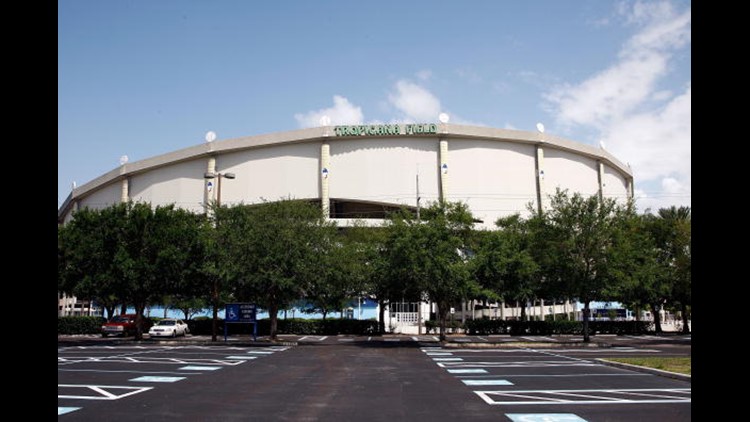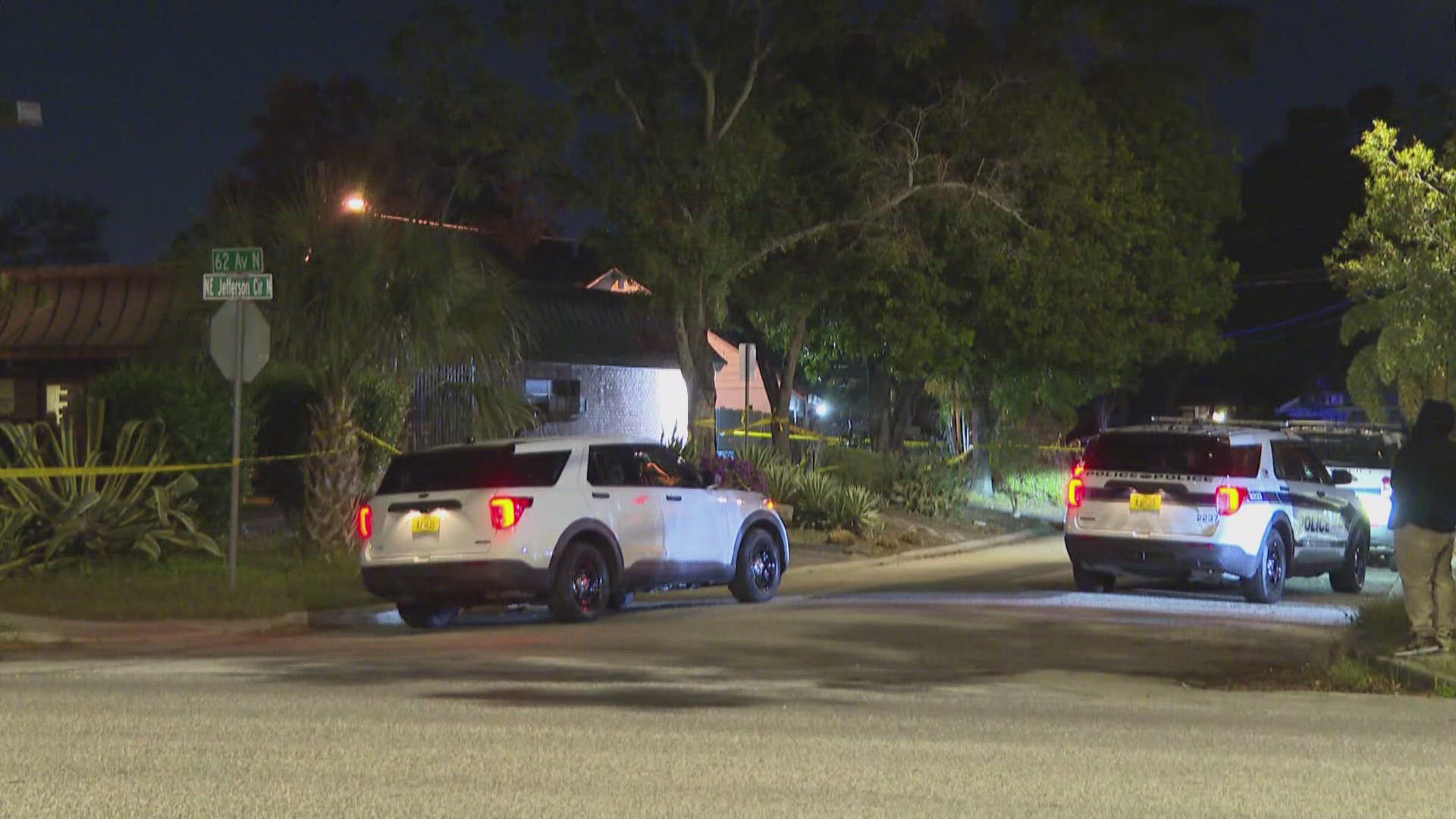TAMPA, Florida – While select leaders - on both sides of Tampa Bay - debate the future of the Rays, any possible public funding for a new stadium will ultimately require the approval of either the Hillsborough or Pinellas County commissions.
10News WTSP asked each candidate running for a commission seat this year about his or her opinions on a new stadium. Below is a summary of their answers. Primary day is August 30 with general elections in November.
* = incumbent
Write-in candidates were not included.
District 1 (No Primary)
Sandy Murman* (R) – District 1’s sitting commissioner, Murman supports moving the Rays to Hillsborough County, comparing the potential relocation to that of a major corporate headquarters. But she remained reserved about how to pay for a stadium. “Under no circumstances will I support a sales tax increase or use of general revenue to finance a ballpark,” Murman wrote, adding that any subsidy proposal needs to be thoroughly vetted by county staff before commissioners can consider it, and she wishes the current conversations were more transparent. She said she “didn’t have a number in mind” for how much the county could contribute to a stadium, Murman wrote “We need to resolve our transportation funding plan before we begin the Rays conversation.”
Jeff Zampitella (D) – A Downtown Tampa resident, Zampitella says he would like to see the Rays move to the Tampa Park Apartment site, sandwiched between downtown’s Channel District and Ybor City. He says the site has promising transit, parking, and ingress/egress potential. And while he said he opposes general property tax revenues going toward a stadium, Zampitella has a liberal view on using other tax revenues to secure the Rays’ future, including bed taxes, sales taxes, property tax breaks, Community Redevelopment Area (CRA) property tax earmarks, and the local telecommunications tax. He applauded Commissioner Ken Hagan’s leadership on the negotiations so far, but also believes the discussions need to be more transparent for the public’s benefit.
District 3 (no election)
Les Miller (D) – The sitting commission chair, Miller responded to 10News’ questions with a simple seven-word statement: “I have no comments at this time.” However, he has allowed fellow commissioner Ken Hagan to lead the county’s secret negotiations with the team. And in previously-public comments from January, Miller was quoted as saying, “We want the Rays to stay no doubt...but we have to figure out a way to pay for it and not ask taxpayers to pay for a new stadium."
Jim Norman (R) – The former commissioner failed to return numerous emails, but helped craft the Bucs' subsidized stadium deal while county commissioner 20 years ago. However, in 2010, he expressed hesitation when fellow commissioner Ken Hagan tried to pry the Rays from St. Petersburg without first getting permission. And recently, told the Tampa Bay Times "the pot is just not deep enough" to retain three pro franchises, pointing to the Bucs' and Lightning's expiring stadium leases in 2027.
Tim Schock (R) – Since his unsuccessful 2014 commission run, Schock has maintained his call for Pinellas and Hillsborough counties to work together to find the Rays a new home, rather than compete against each other. “Lack of cooperation between Hillsborough County and Pinellas County is leading to competition that is detrimental to both,” Schock wrote. He said he’d likely support bed tax revenues going toward a stadium, but not any other local “unrestricted” funds. Instead, he suggested the state should step up to retain MLB in Tampa Bay, just as it funds spring training stadium projects, and better collaboration between the two counties could advance that goal.
John Dicks (D) – A proponent of a Rays-to-Hillsborough move, the former mayor of Plant City advocates using bed tax and a new stadium Community Redevelopment Area (CRA) to help pay for a facility. CRA districts redirect local property taxes from redeveloped areas back into the same area. However, the revenues can be unpredictable and they ultimately come from county tax coffers. Dicks said state money could also help the county land the Rays, which he believes would drive new tourism revenues. He also emphasized the need for Hillsborough to work with Pinellas on a comprehensive transit & transportation plan, “paramount for our quality of life as well as the success of any professional sports team.”
Pat Kemp (D) – An advocate for regional transit, Kemp said funding a baseball stadium cannot be prioritized ahead of transportation and other issues. “I would likely oppose the use of any general revenues to fund a new stadium,” said Kemp, but she said she could see a possible stadium downtown or near West Shore and that she “might support tax increment revenues generated strictly by stadium development and parking revenues accruing from stadium events.” Kemp added that she was concerned about the lack of transparency in the county’s discussions with the team to-date and “the stadium cannot be the product of a backroom deal.”
Tom Scott (D) – A former county commissioner, Scott says he favors a new stadium somewhere in the “urban core.” But he also says public financing should be limited to just the bed tax, which he says “has the capacity to produce the funding needed for the stadium.” However, most estimates of Hillsborough County’s bed taxes project the revenues to bond no more than $75 million in construction. Scott says “enough energy is being given already for the stadium” and has suggested a long list of other priorities for the county.
Brian Willis (D) – Perhaps the race’s most outspoken candidate on the issue of expanding transit, Willis suggested every Rays stadium conversation needs to revolve around transportation, “If we get the transportation piece right,” Willis said, “well-connected to our regional transportation network and future transit connections...everyone will benefit, including any future stadium location.” He also encouraged Hillsborough and Pinellas County to stop competing against each other for the Rays, and not to get in bidding wars with other U.S. cities either. But Willis said if the team pays for more than half of a new stadium’s cost, he could see Hillsborough contributing bed tax dollars, applying for state money, and also asking the airport authority & state legislature to increase rental car fees to help subsidize the construction cost.
Follow 10 News investigative reporter Noah Pransky on Twitter at www.twitter.com/noahpransky, Facebook at www.facebook.com/noahpransky, or on his Sports Business blog, Shadow of the Stadium.



